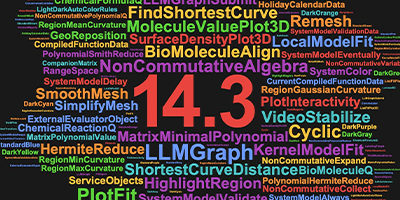Looking Back at the Wolfram Science Summer School 2012
The release of A New Kind of Science in 2002 generated all sorts of excitement, which was reflected at our first Summer School in 2003. Since then, the projects students worked on have been closely related to the book, but this year marked a change, with an increased scope and a new name: Wolfram Science Summer School.

This change has been a long time coming. It was 2009 when Wolfram|Alpha was released, with its emphasis on computable knowledge, and even more time has passed since 2007 when data paclets in Version 6 of Mathematica introduced the idea of computable data. The unifying theme among these achievements is that all things worth talking about are computations, and that these computations can be simple in theory and in practice.
Of course, many of the projects done at this year’s Summer School were still closely related to NKS. Sometimes the students’ projects had some features in common with each other. This year there were a few systems with rules that connected elements at long distances in space or time, and a few multiway systems. Some of the applied projects involved crack propagation, musical composition, shading facades, identifying artifacts, pupil dilation, and pedestrian traffic, as well as ordinary traffic with cars. In every case, the students this year worked hard and made significant discoveries.
We had 38 students, each with their own project, each with their own story. They came from around the world. This year we had a good showing from Italy, Mexico, Czech Republic, and Egypt. There were two or three logicians. David was a common name, as was Tomas. You can now explore what students worked on and find out more about their projects on the Summer School website.
In the past, every student did a homework project on a cellular automaton, but this year the homework projects were on Turing machines. Stay tuned for an upcoming blog post about the Turing machine homework.



Comments